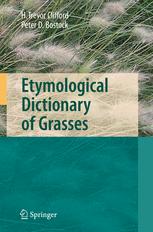

Most ebook files are in PDF format, so you can easily read them using various software such as Foxit Reader or directly on the Google Chrome browser.
Some ebook files are released by publishers in other formats such as .awz, .mobi, .epub, .fb2, etc. You may need to install specific software to read these formats on mobile/PC, such as Calibre.
Please read the tutorial at this link: https://ebookbell.com/faq
We offer FREE conversion to the popular formats you request; however, this may take some time. Therefore, right after payment, please email us, and we will try to provide the service as quickly as possible.
For some exceptional file formats or broken links (if any), please refrain from opening any disputes. Instead, email us first, and we will try to assist within a maximum of 6 hours.
EbookBell Team

4.8
74 reviewsAs employed here the term grass applies only to species included in the Poaceae, one of the largest families of flowering plants. However, the word is often applied to any herbaceous plant with long, narrow leaves. A similar view was adopted by the Ancients. The Greeks applied the words poa, poe and agrostis to herbaceous plants in general and the Romans employed the words gramen and herba in a similar sense. In both cultures, unique names were applied to species of economic or special s- nificance. As a major source of cereals, pasture plants and even timber, the Poaceae are one of the most important economic plant families. Many have acquired vernacular names but these vary from place to place and so are of limited value for technical purposes. For ease of professional communication vernacular names are replaced with bino- als whose use is controlled by an International body. Initially the binomials were derived mainly from words of Classical Greek or Latin, but the practice was never strictly enforced. Today taxonomists often employ words from their own language or resort to naming grasses after places, people, ships, uses, acronyms to name but a few sources. In the process the names are often Latinized making it difficult for readers, especially those whose language has not been inf- enced by the European Classics, to recognize their sources and to determine their meanings.